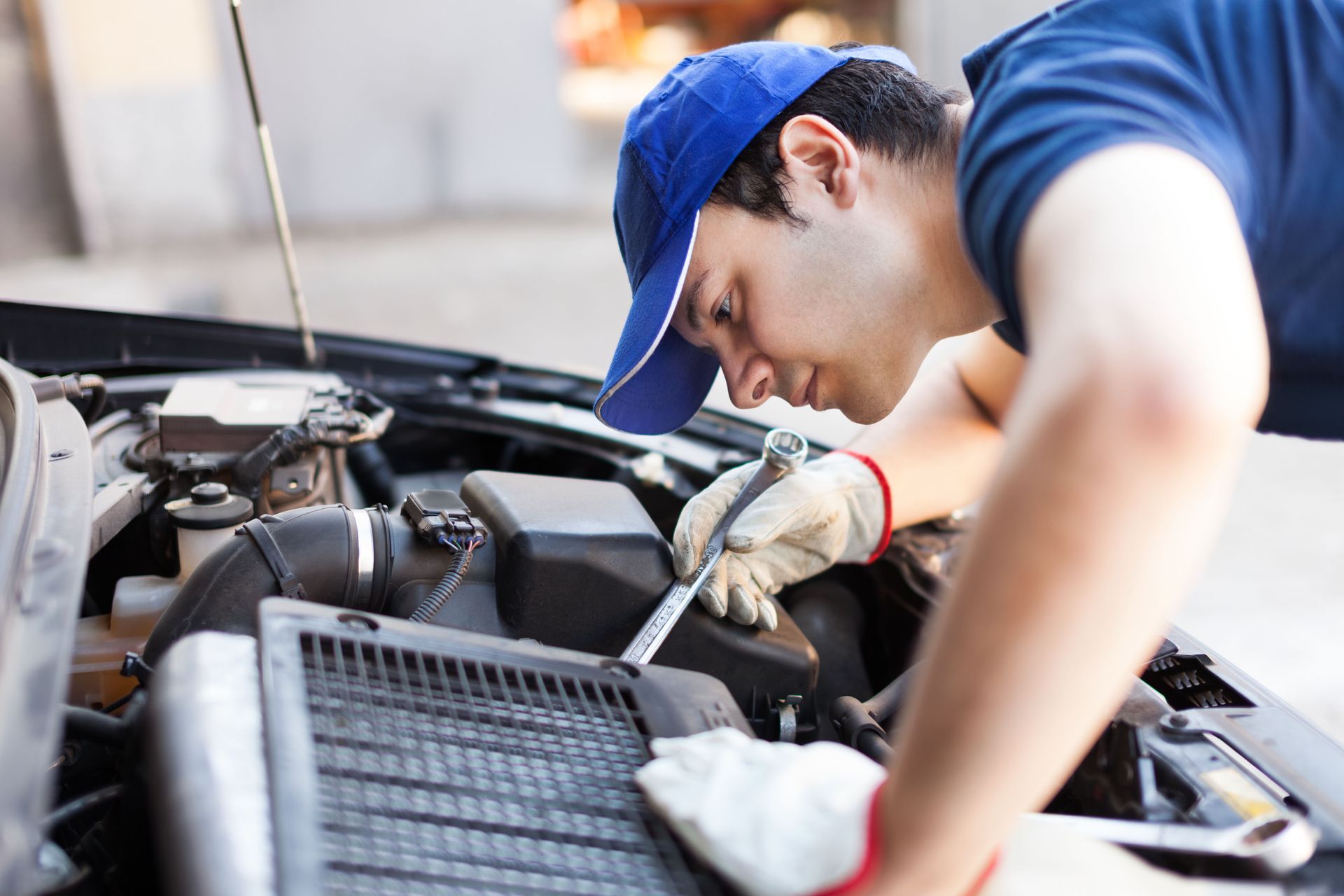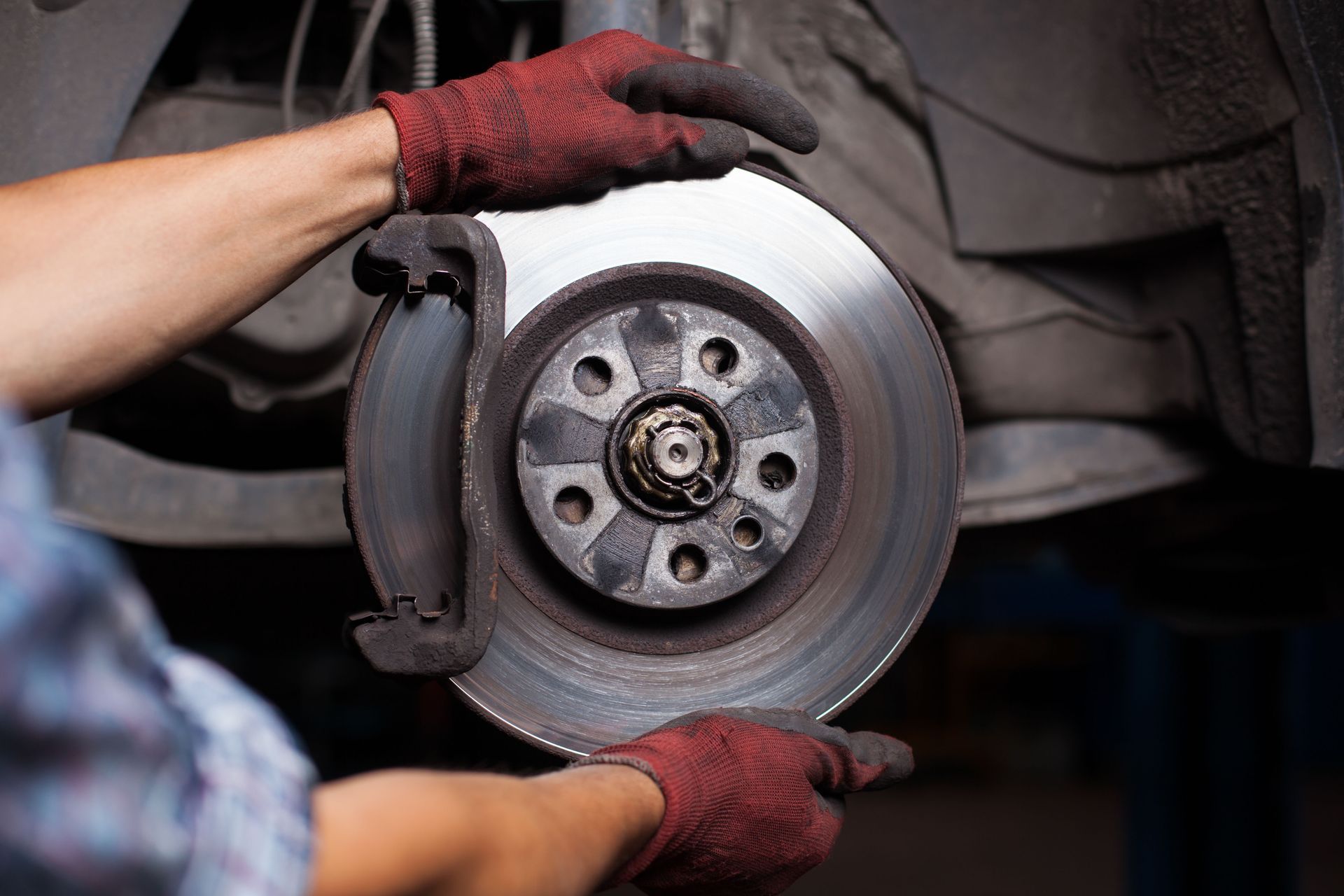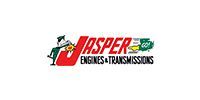September 29, 2025
Vehicles are essential for work, errands, and travel, but even the most reliable cars need maintenance and repairs over time. Knowing the most common types of auto repairs helps drivers stay prepared, make informed decisions, and avoid unexpected breakdowns. From minor fixes to major mechanical work, understanding these repairs also gives car owners peace of mind when visiting a repair shop. Consulting with a professional when you suspect car trouble is always a good idea.
Addressing Engine Troubles
When the check engine light appears, it can cause instant anxiety for any driver. Engine issues range from simple problems, like a loose gas cap, to complex concerns, such as faulty oxygen sensors, timing belt failures, or misfiring spark plugs. Many auto repairs involving the engine begin as small, manageable fixes but can escalate quickly if ignored.
A malfunctioning engine affects fuel efficiency, vehicle performance, and even safety on the road. Regular maintenance, such as timely oil changes and replacing worn parts, prevents expensive breakdowns. For example, replacing a timing belt at recommended intervals is far less costly than repairing severe engine damage if it snaps. Taking engine concerns seriously is key to keeping a car running smoothly for years.
Fixing Brake System Issues
Brakes are among the most important safety features in any vehicle, making brake-related auto repairs very common. Drivers often notice early warning signs, such as squealing noises, vibrations when braking, or a spongy brake pedal. These symptoms typically indicate worn brake pads, leaking brake fluid, or warped rotors.
Routine brake inspections and timely repairs prevent accidents and reduce repair costs. Replacing brake pads before they wear down completely helps protect the rotors and calipers, saving drivers money in the long run. Keeping the brake system in top condition not only ensures safety but also maintains the vehicle’s overall value.
Repairing Transmission Problems
Transmission repairs are often among the most complex and expensive auto repairs a car might need. The transmission is responsible for transferring engine power to the wheels, allowing the vehicle to move smoothly at different speeds.
Signs of transmission trouble include slipping gears, delayed shifting, or fluid leaks under the vehicle. In many cases, the issue stems from low transmission fluid or worn components like the clutch or torque converter. While fluid flushes and minor repairs can solve small problems, neglecting transmission issues can lead to complete failure, requiring a costly rebuild or replacement.
Staying on top of transmission maintenance, such as regular fluid changes, helps extend its lifespan and reduces the risk of major breakdowns.
Replacing Worn-Out Tires
Tires endure constant friction, varying weather conditions, and rough road surfaces, making tire replacement one of the most frequent auto repairs. Bald or unevenly worn tires not only affect fuel efficiency but also compromise safety, especially in wet or icy conditions.
Rotating tires every 5,000 to 7,000 miles and maintaining proper tire pressure extends their life and improves performance. Wheel alignments and balancing also prevent uneven wear. When tires reach the end of their lifespan, replacing them promptly ensures better traction, improved handling, and safer driving overall.
Maintaining the Cooling System
The cooling system keeps the engine from overheating by circulating coolant through the radiator and engine block. Common auto repairs in this system include fixing radiator leaks, replacing water pumps, and flushing the coolant to remove buildup.
When the cooling system fails, it can lead to engine overheating, warped cylinder heads, or even total engine failure. Drivers often notice rising temperature gauges, steam from under the hood, or coolant pooling beneath the vehicle. Regular inspections and replacing worn hoses or thermostats prevent these issues, keeping the engine at a safe operating temperature.
Servicing the Suspension and Steering
A vehicle’s suspension and steering systems affect ride comfort, handling, and overall safety. Over time, components like shock absorbers, struts, ball joints, and tie rods wear out, leading to symptoms such as uneven tire wear, drifting while driving, or excessive bouncing over bumps.
Auto repairs in this category often involve replacing worn parts and realigning the wheels to restore stability. A well-maintained suspension system not only improves driving comfort but also helps other components, like tires and brakes, perform at their best.
Replacing Dead Batteries and Faulty Alternators
Electrical issues are another common reason drivers seek auto repairs. Car batteries typically last three to five years, while alternators, which charge the battery and power electrical systems, can fail after extended use.
Signs of trouble include dim headlights, slow engine cranking, or dashboard warning lights. Replacing a dead battery is straightforward, but alternator repairs or replacements may be necessary if the charging system fails. Keeping battery terminals clean and scheduling electrical inspections can prevent unexpected breakdowns.
Repairing Exhaust System Problems
The exhaust system directs harmful gases away from the engine and reduces noise levels while improving fuel efficiency. Over time, components like the muffler, catalytic converter, and exhaust pipes can develop leaks or corrosion.
Common symptoms include loud engine noises, decreased fuel economy, or a noticeable smell of exhaust fumes. Timely repairs prevent harmful emissions, ensure compliance with environmental regulations, and keep the vehicle running efficiently.
Restoring Air Conditioning and Heating Systems
Comfort systems like air conditioning and heating often require attention, especially during seasonal changes. Auto repairs in this category might involve recharging the refrigerant, replacing worn compressors, or fixing blower motors.
A malfunctioning climate control system not only affects comfort but can also impact visibility if defrosters fail during cold weather. Regular inspections help identify leaks, worn belts, or electrical issues before they lead to system failures.
Addressing Accident-Related Damage
Some auto repairs result from accidents rather than wear and tear. Bodywork, frame straightening, and replacing damaged panels or bumpers are common after collisions.
According to NHTSA, speeding, impaired driving, and distracted driving are the leading causes of fatal crashes in the US. Even minor accidents can cause hidden mechanical damage, making professional inspections essential before putting a repaired vehicle back on the road.
Replacing Belts and Hoses
Belts and hoses play a critical role in the engine’s operation, powering components like the alternator, water pump, and power steering system. Over time, they become brittle, cracked, or stretched, leading to breakdowns if not replaced promptly.
Routine inspections and replacing belts and hoses at recommended intervals prevent sudden failures and keep the vehicle running smoothly.
Servicing Fuel System Components
The fuel system delivers gasoline to the engine, and problems like clogged fuel filters, failing fuel pumps, or dirty injectors often require professional repairs.
Symptoms include difficulty starting the engine, reduced fuel efficiency, or loss of power while driving. Regular maintenance, such as replacing filters and using quality fuel, helps prevent many common fuel system issues.
Understanding the most common types of auto repairs helps drivers stay informed, budget for maintenance, and recognize early warning signs before minor issues become major problems. From engine troubles and brake repairs to tire replacements and electrical system fixes, staying proactive ensures a safer and more reliable driving experience. By addressing concerns early, drivers can avoid costly breakdowns, extend the life of their vehicles, and enjoy greater peace of mind on the road. For professional, dependable service on any of these repairs, contact Menke's Auto Repair today to keep your vehicle in top condition. We look forward to hearing from you!








